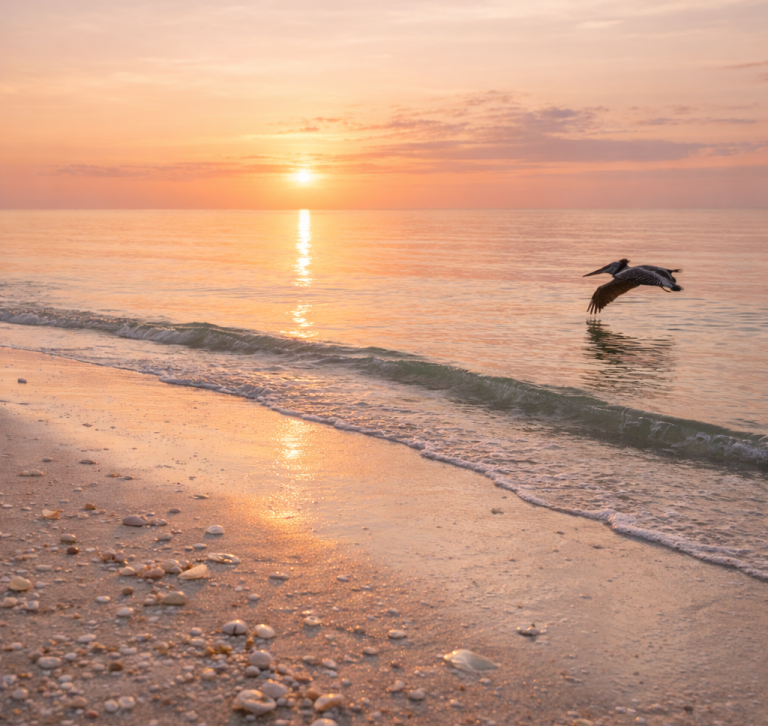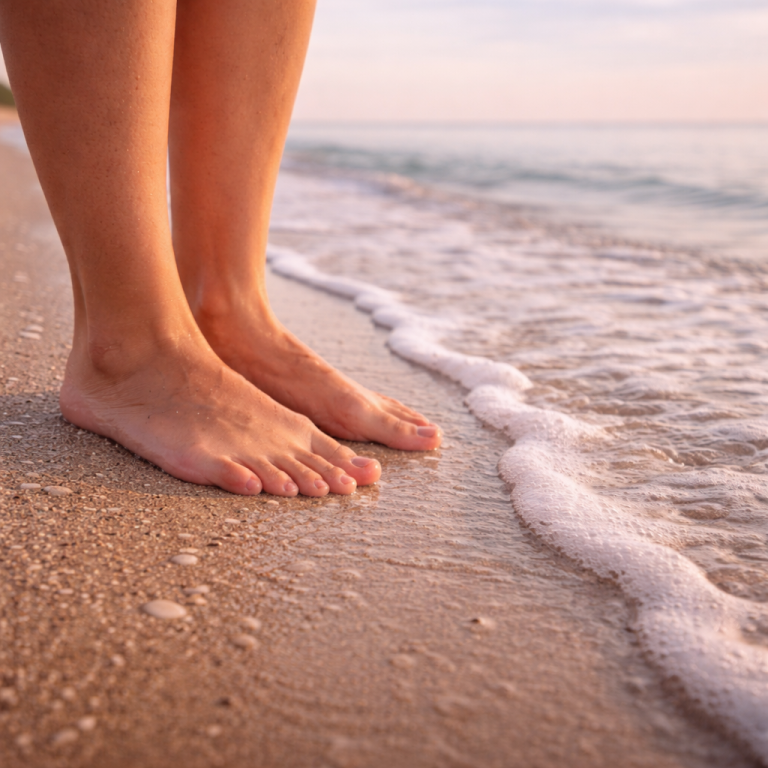Locals know Sanibel hides more than just beaches and shells…
Sanibel Sky spills watercolor over the Gulf, a slow song. According to NOAA, sunsets glow when sunlight scatters through air.
NOAA notes angle and particles shape vivid hues. I saw dolphins leap beneath a green flash—odd but true.Birdwatchers and dreamers gain secret spots and tips. Read on.
Sanibel Skies: Where Every Sunset Feels Personal
Sanibel’s sky is wide, slow, and painted with liquid fire. The sunsets here feel like they’re speaking only to you.
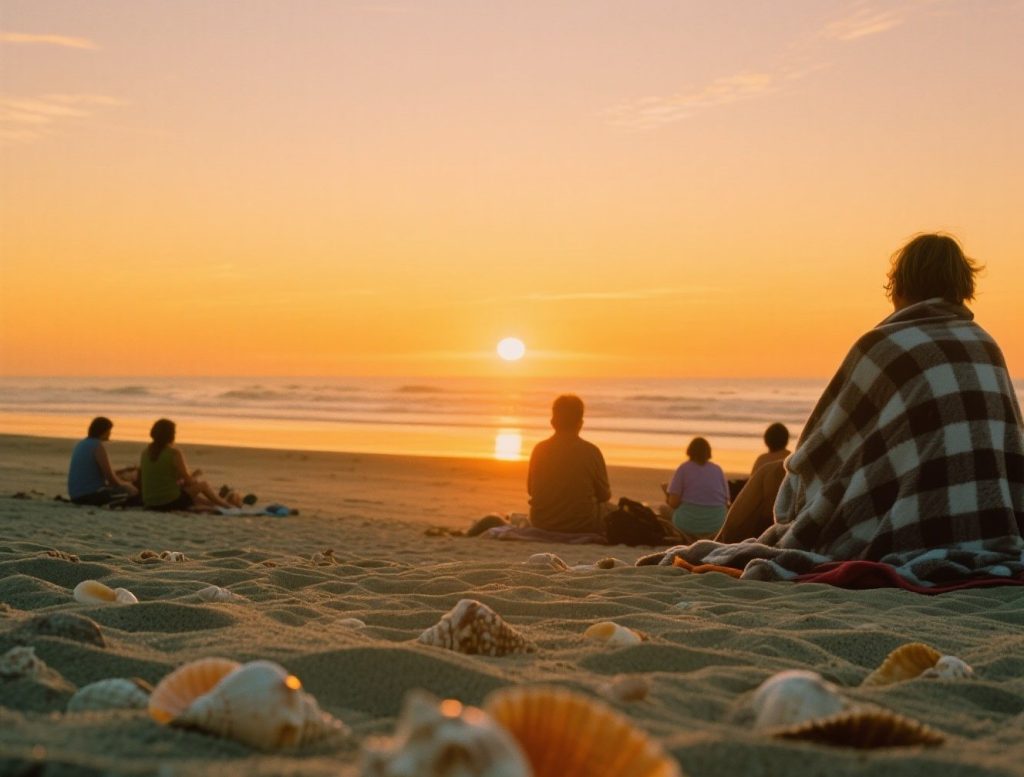
Where to Go
| Spot | Why It’s Special |
| Bowman’s Beach | Vast, wild, no buildings, just open sky. |
| Lighthouse Beach | Historic view, calm water, pastel skies. |
| Blind Pass | Dramatic waves, fiery horizon at sundown. |
Quick Extras
- Best time: 15–30 minutes before/after sunset
- Bring: small blanket, tripod phone stand, thermos of tea
- Tip: Wait for the “afterglow.” Colors deepen when the sun is gone.
A Personal Glimpse
Once, sitting on a folded towel at Blind Pass, the sky looked like melted sherbet—orange fading into deep lavender. A dolphin jumped, right when the last pink light faded. It felt like the horizon itself applauded the day. Funny how the quietest moments are the loudest in memory.
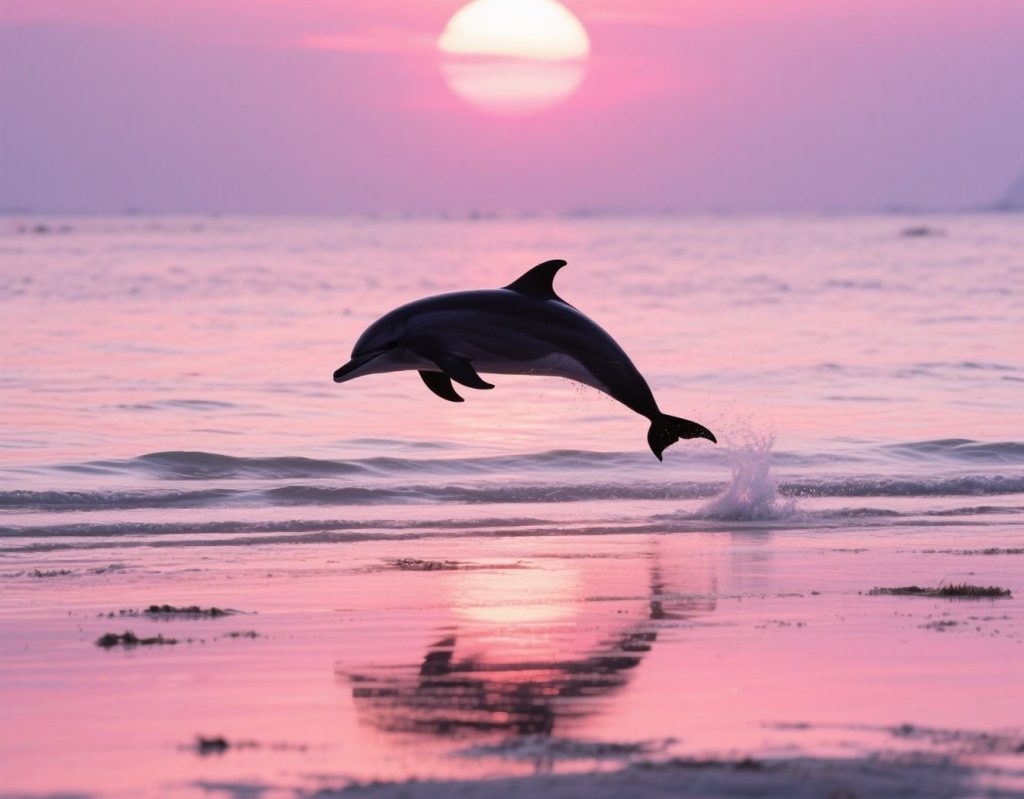
Sunsets here aren’t just views. They’re little lessons in slowing down. Every evening feels brand new, like the sky is painting just for you.
Why Sanibel Is The Shell Capital (and how to enjoy it responsibly)
Sanibel’s curved, scoop-like shoreline gathers shells from Gulf currents. The beaches are rich and varied. The Bailey-Matthews National Shell Museum and Sanibel Island Chamber of Commerce tell the island’s shell story and rules. Live shells must stay in the water.
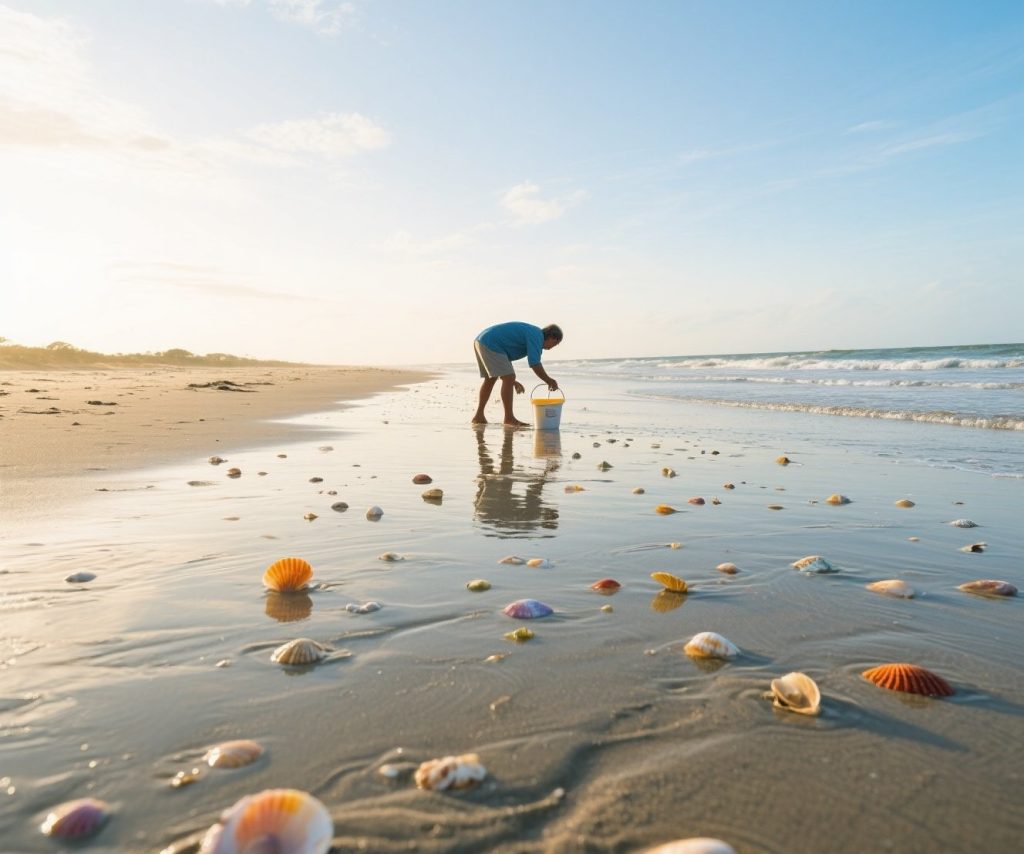
The sand feels different underfoot, sprinkled with tiny treasures. Some shells sparkle wet, others whisper of journeys across the Gulf. Each has a story, from lightning whelks to delicate scallops. The museum nearby keeps the biggest secrets safe inside glass cases, but the beach itself is the real classroom.

Once, at dawn, a bright Junonia lay half in a tidal curl. Heart skipped. It’s rare. The finder left it for others and took a photo. Joy stayed. Funny how letting go can feel like holding treasure.
Birdsong & Mangroves: Meet Ding Darling
The J.N. “Ding” Darling National Wildlife Refuge protects mangroves and hosts hundreds of bird species. — U.S. Fish and Wildlife Service
Ding Darling is an estuarine refuge. Quiet trails and boardwalks thread through mangrove roots. Bring binoculars. Bring patience. The mornings are alive.
Walk softly, and you will hear the swamp breathe. Early morning feels like the world holds its breath, waiting for the first birdcall. By late afternoon, the air shimmers, and dragonflies flash between the roots. It’s not a place for noise—binoculars and quiet patience are your best companions.
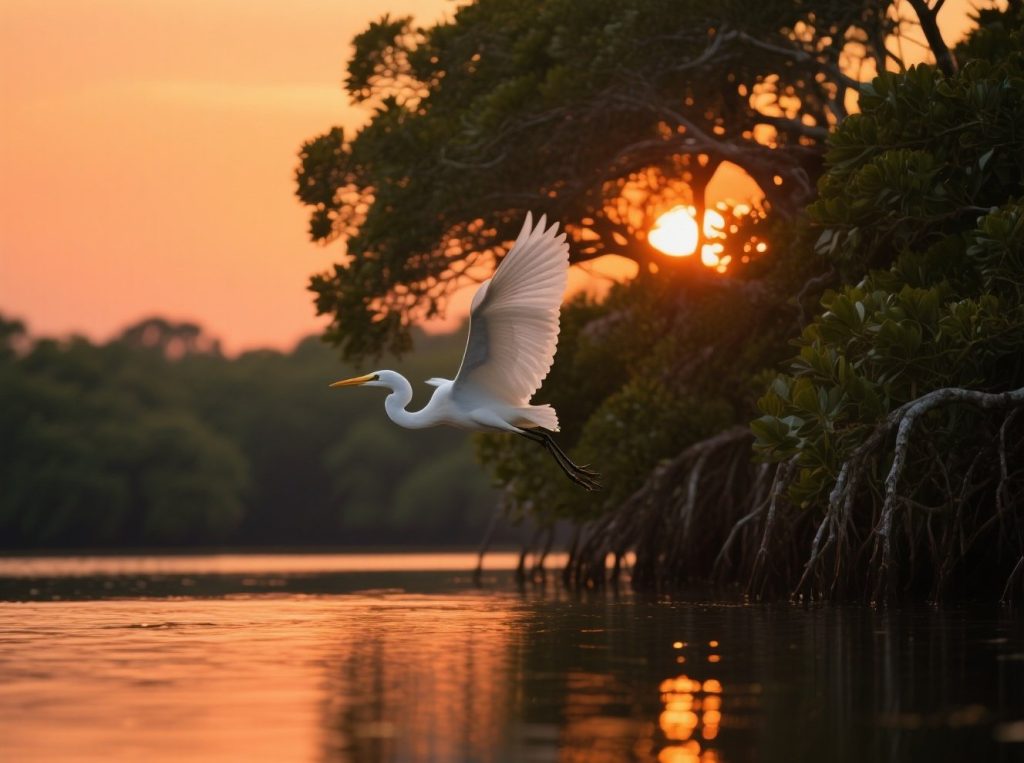
The refuge protects more than trees and tides. It protects stillness, the rare kind that settles in your bones. There are hidden corners where the path bends, and you find nothing but water, wind, and your own heartbeat.
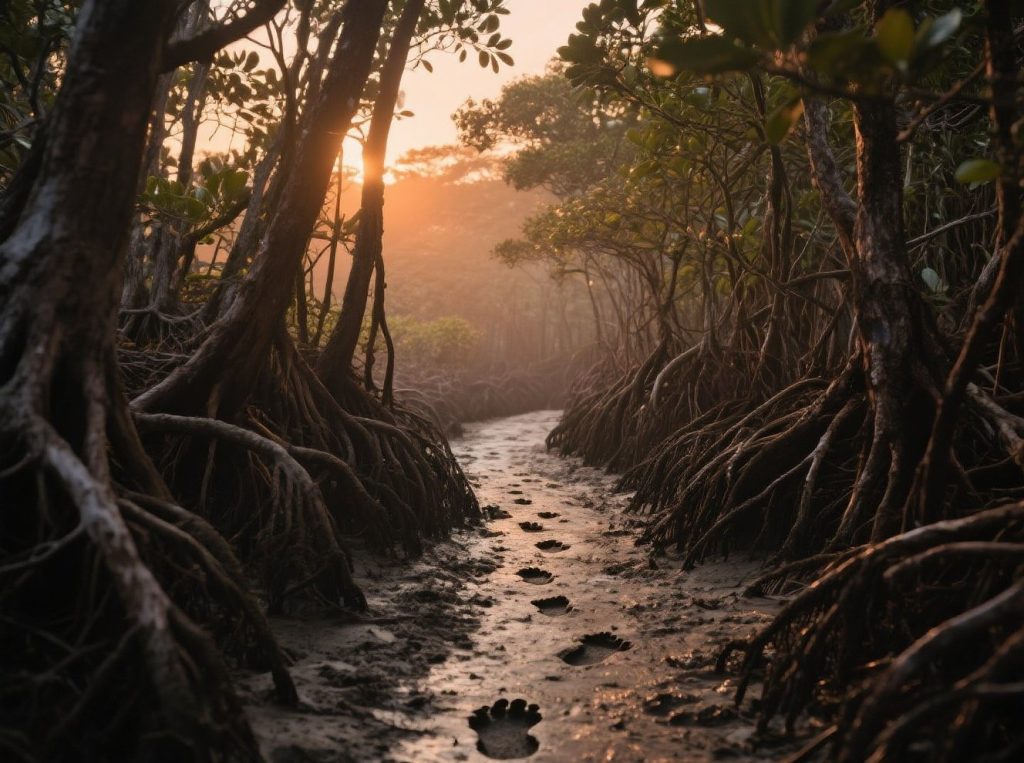
And there’s a rule unspoken but felt—respect the land, stay on the trails, let the wild be wild. That is how the island reveals its quiet treasures.
Conclusion — Carry the Sky Home
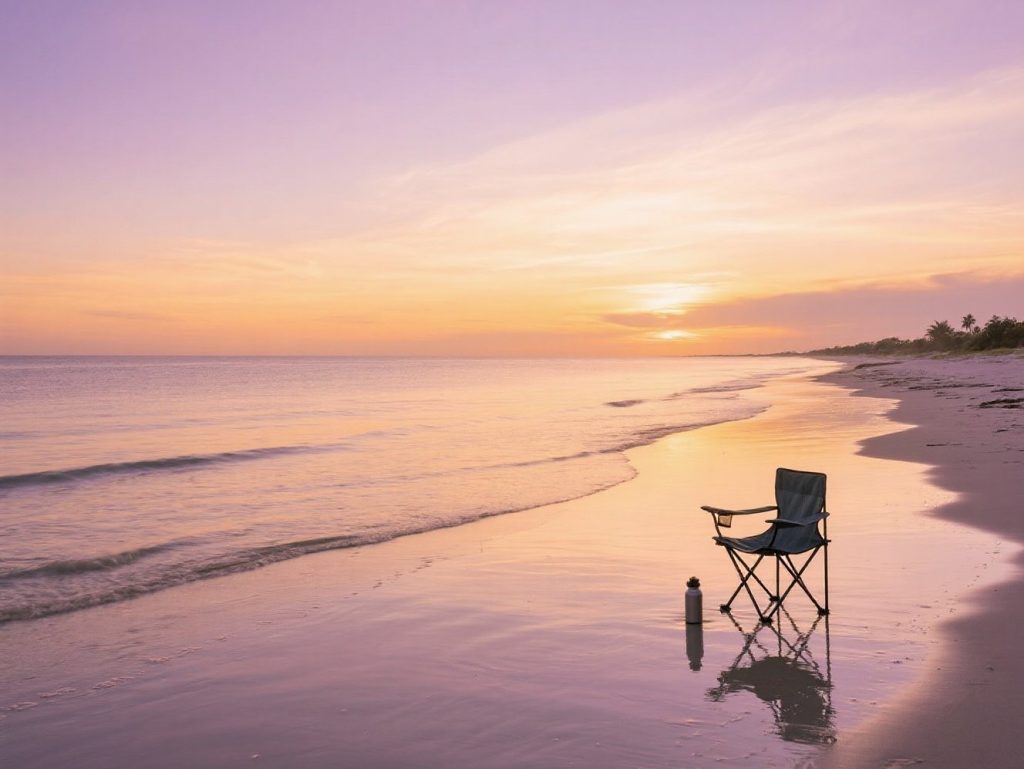
Sunset memories stick. Sign up and get the little alerts that make visits richer. I once got a shelling note and found a tiny Junonia at low tide. True story. It felt like winning a soft prize.
Sign up to get short island updates and contest news.
Thanks for visiting—may your next sky on Sanibel be the most peaceful one yet. Come back for more sunsets, shells, and quiet discoveries.
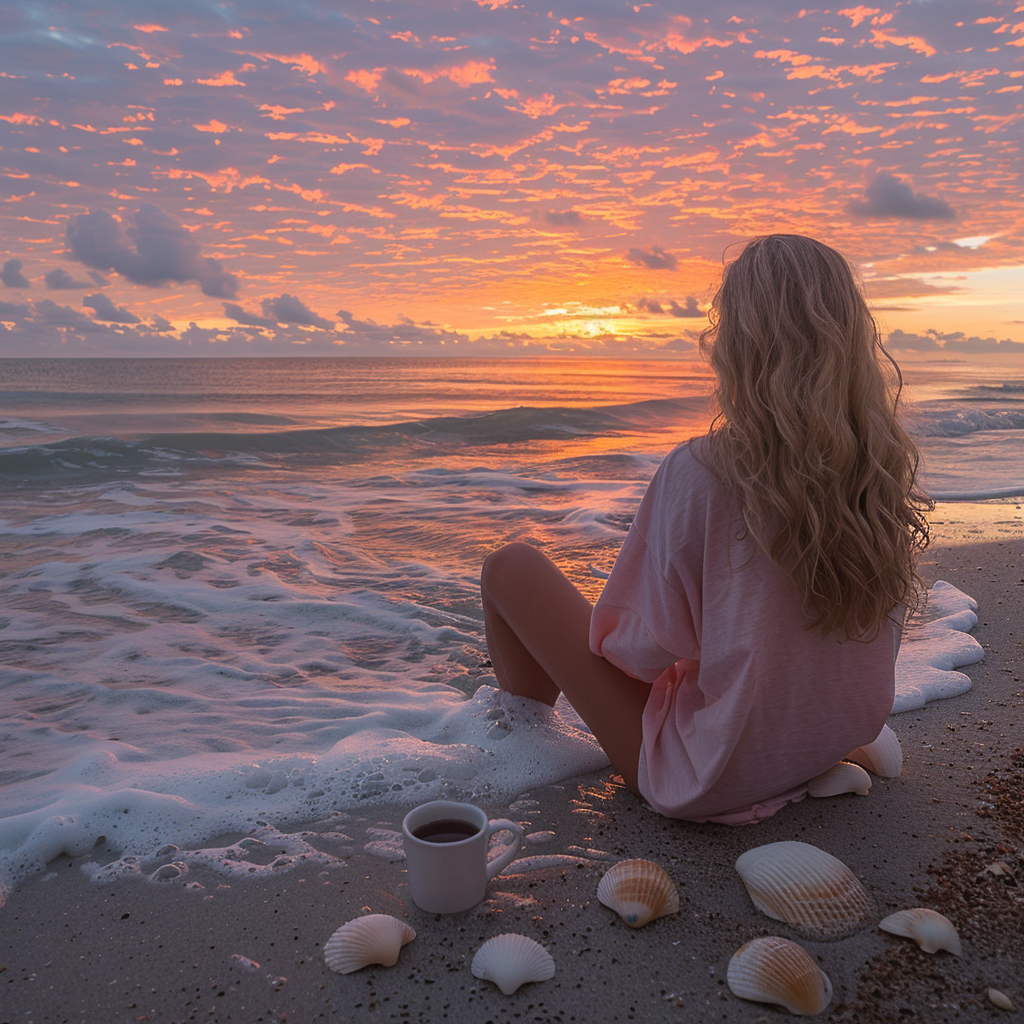
I’m Ayla Wolesky, and I’ve spent years exploring every corner of Sanibel Island. From its pristine beaches to the hidden gems only locals know about, I’m passionate about sharing everything this beautiful island has to offer. Whether it’s the best spots for shelling, the wildlife that makes Sanibel so special, or where to enjoy a perfect sunset, I’ve got you covered. My goal is to provide insider tips and up-to-date information that will help you experience Sanibel Island like never before.



